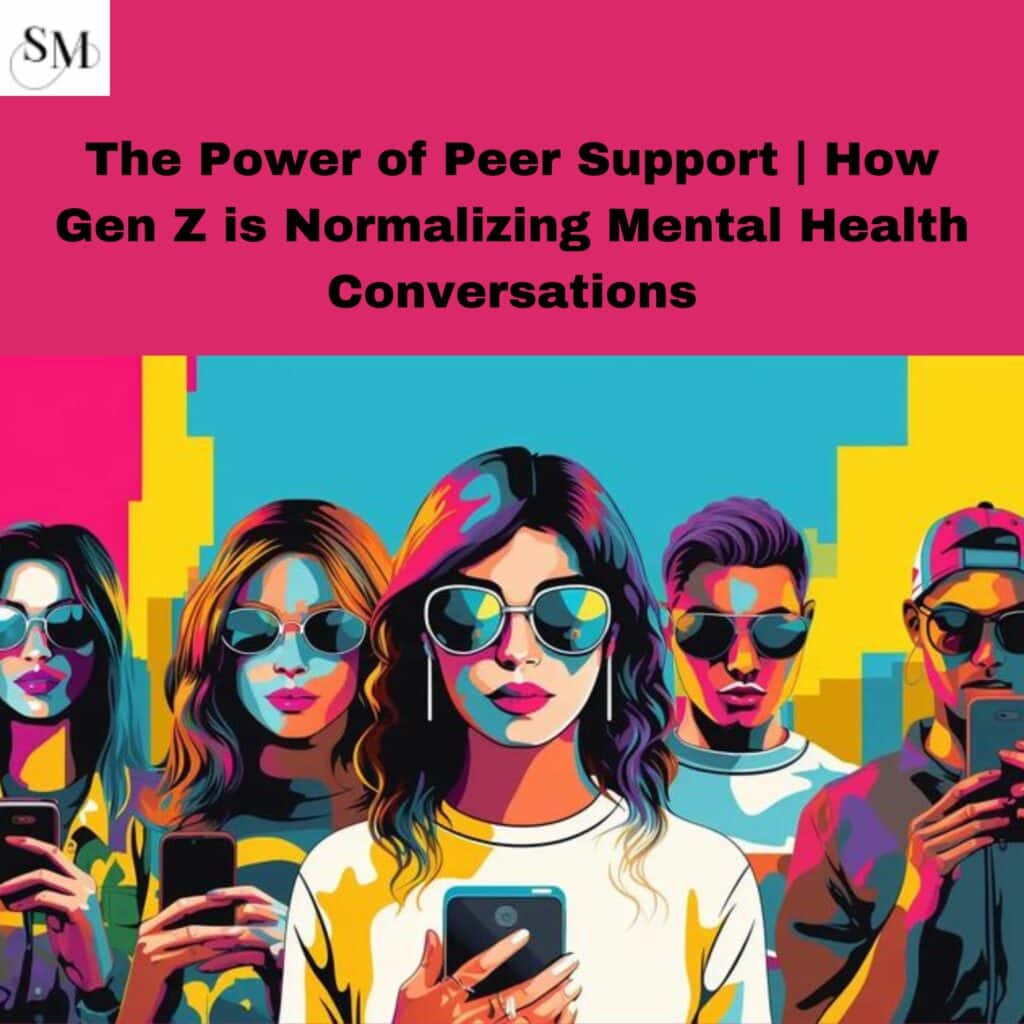In recent years, mental health has transitioned from being a taboo topic to one of the most widely discussed issues, especially among Gen Z. Known for their progressive mindset and openness, this generation is reshaping how society addresses mental health challenges. A significant driver of this change is peer support, where individuals come together to share their experiences, provide emotional encouragement, and create safe spaces for honest conversations.

The Shift in Perspective
Unlike previous generations, Gen Z is more vocal about mental health struggles. Thanks to social media platforms, awareness campaigns, and relatable influencers, conversations about anxiety, depression, and other mental health conditions are no longer whispered but amplified. Peer support groups, both online and offline, play a crucial role in fostering this open environment.
Why Peer Support Matters
- Shared Experiences: Peer support groups bring together individuals who’ve been through similar challenges. This shared understanding fosters a sense of belonging and reduces feelings of isolation.
- Breaking Stigmas: Discussing mental health openly with friends or peers can challenge societal stigmas, making it easier for others to seek help without fear of judgment.
- Empowerment Through Empathy: Hearing someone else’s story can inspire individuals to seek help, adopt coping mechanisms, and realize they are not alone.
- Cost-Effective Help: Peer support is often free or low-cost, providing a stepping stone for those hesitant to pursue professional therapy.
Gen Z and Social Media: A Double-Edged Sword
Social media platforms have become virtual gathering spaces where Gen Z discusses mental health topics. Hashtags like #MentalHealthAwareness and #ItGetsBetter trend regularly, encouraging people to share their journeys. Virtual peer support groups and mental health influencers create communities that feel inclusive and understanding. However, while these platforms foster connection, they also come with risks, such as misinformation or triggering content.
How to Foster Peer Support
- Start Conversations: Encourage open discussions in schools, workplaces, and social groups about mental health.
- Create Safe Spaces: Ensure that peer support groups are judgment-free zones where individuals feel comfortable sharing their thoughts.
- Educate Yourself: Learn about common mental health issues and how to support someone experiencing them.
- Encourage Professional Help: While peer support is invaluable, it’s important to guide individuals toward professional counseling for deeper challenges.
The Road Ahead
With Gen Z leading the charge, mental health conversations are becoming a normal part of daily life. By prioritizing peer support and breaking stigmas, this generation is setting the stage for a more compassionate and understanding society.
Need Help?
If you or someone you know is struggling with mental health, don’t hesitate to seek help. Surbhi Manocha, based in Meerut, is an experienced counselor providing online therapy across India. She offers professional guidance to help individuals navigate their mental health challenges effectively. Reach out today and take the first step toward well-being.
